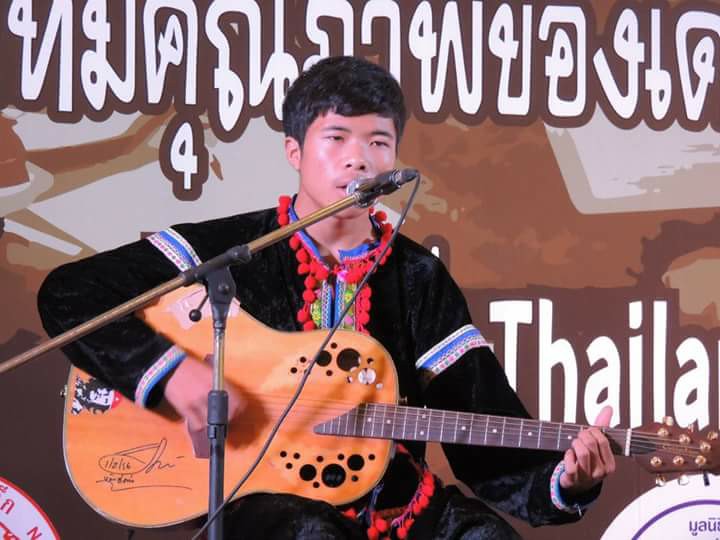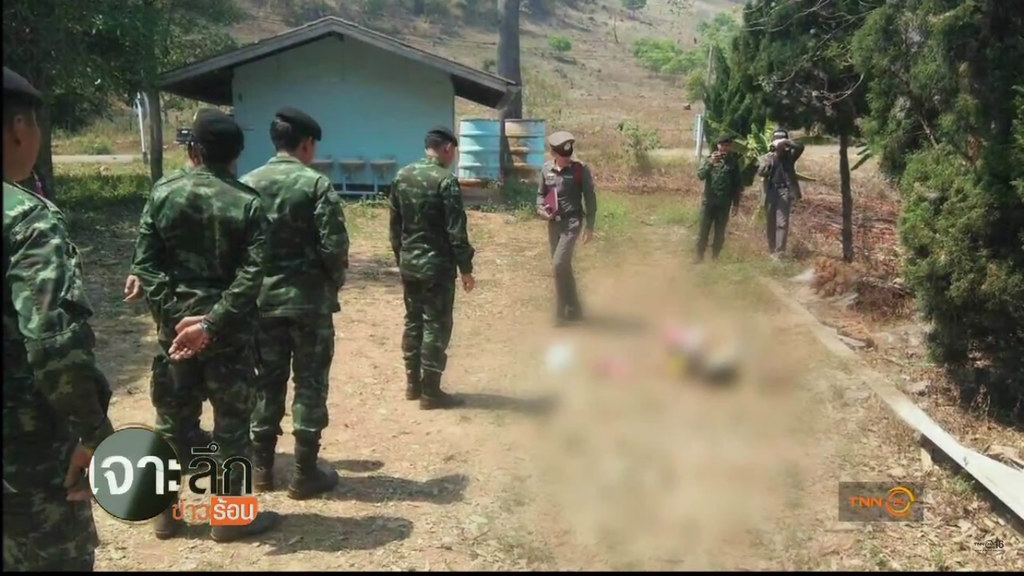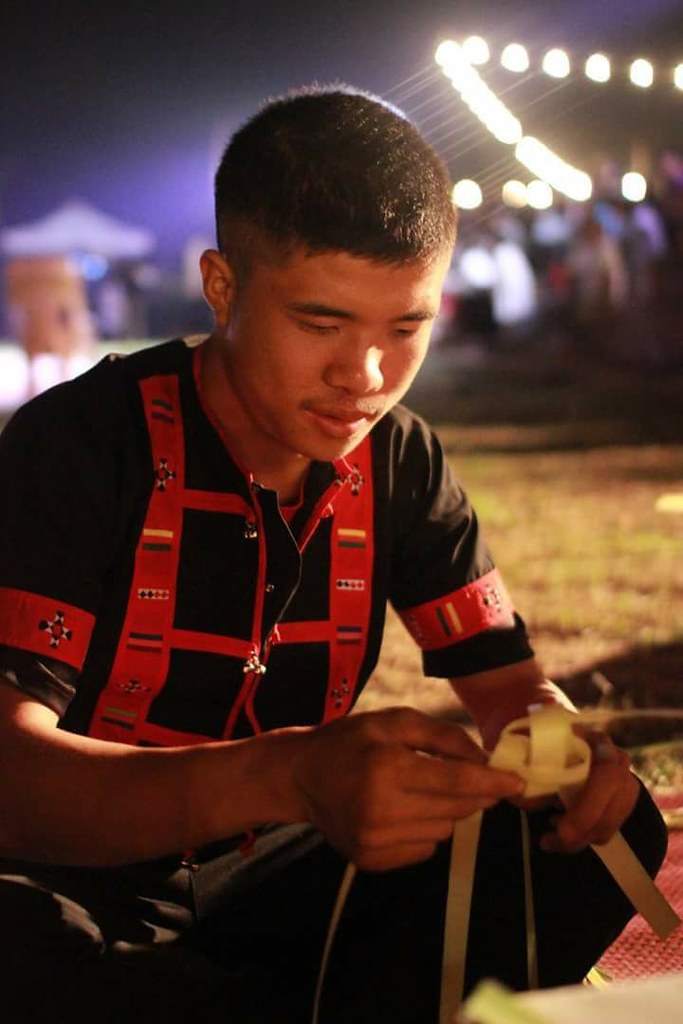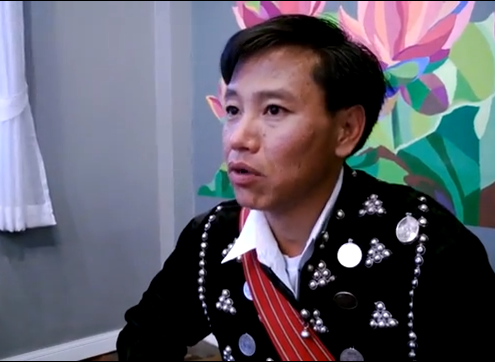Behind the summary killing of a young ethnic minority rights activist lies a deep-rooted culture of impunity and discrimination against ethnic minorities long stigmatised as drug traffickers.
On 17 March 2017, the promising life of Chaiyapoom Pasae, a 17-year-old member of the Lahu ethnic minority, was cut short when soldiers and other security officers of the Pha Muang Task Force deployed at a checkpoint in Chiang Dao District in Chiang Mai Province summarily killed him.
Chaiyapoom was a well-known activist from the Young Seedlings Network Camp in Chiang Dao district. He was involved in numerous campaigns to promote the rights of ethnic Lahu and other vulnerable ethnic minorities in northern Thailand to gain citizenship, health care, and access to education. He also spoke out against abuses by the Thai security forces against his community during anti-drug operations. He was also a producer of documentaries and a composer of music. Several of his short films, including 'A Comb and a Buckle,' were shown on the Thai PBS channel.
Col Winthai Suvaree, spokesperson of the National Council for Peace and Order (NCPO), said the act of killing was necessary, backing up a police statement that the soldier who shot Chaiyapoom acted in self-defence after 2,800 methamphetamine pills were allegedly found hidden in a car Chaiyapoom was riding in.
Commenting on the incident, Brad Adams, Asia Director of Human Rights Watch, said “abusive officials have long used anti-drug operations to cover their attacks on activists who exposed official wrongdoing or defended minority rights. Ethnic minorities in Thailand will never have full equality so long as those acting on their behalf face grave risks every day and killings such as this are not investigated properly.”

Chaiyapoom Pasae, a 17-year-old member of the Lahu ethnic minority
Doubts
After the killing, authorities quickly defended the soldier who shot Chaiyapoom. The army report alleges that Chaiyapoom tried to break away from custody after soldiers arrested him and Pongsanai Saengtala, 19, the driver of the car in which the authorities allegedly found 2,800 methamphetamine pills.
After the young activist hid in a nearby bush and attempted to throw a grenade at the soldiers who followed him, one of the soldiers shot him dead with a single shot in self defence, the NCPO spokesperson told the press.
Currently Pongsanai, who directly witnessed the incident, is detained at Chiang Mai Prison. The court demanded two million baht as surety for the bail request from his family, who did not have enough money.
But in an interview that Thai PBS broadcasted on 21 March 2017, an anonymous source said several other civilians saw the incident, adding that three gunshots were heard before Chaiyapoom was killed. “Many villagers saw that he was dragged out of the car and beaten. [A soldier] put a foot on his face and fired two shots to intimidate him. When [Chaiyapoom] broke free from the beating and ran, the soldier shot him. They did not allow the villagers to approach the site,” the Thai PBS quoted the anonymous witness as saying.
Chainarong Sretthachau, an academic from Maha Sarakham University, wrote on his Facebook account that Chaiyapoom was killed at a permanent checkpoint that drug traffickers would probably avoid. It would not make much sense for Chaiyapoom and Pongsanai to choose to take that route if they were trafficking drugs.

A police officer inspecting the body of Chaiyapoom after he was killed (Photo from TNN News )
Recurring nightmares
Although the summary killing of a young Lahu ethnic activist has sparked public outcry, the incident is not rare, but is the latest recurring nightmare which has cast a shadow over the Lahu community for more than a decade.
Sila Jahae, President of the Lahu Association, who has been active in fighting for justice for the Lahu and other hill tribes, told Prachatai that although about 90 per cent of approximately 120,000-150,000 Lahu have Thai citizenship and more than half can speak Thai, they are still viewed by the Thai authorities as foreigners.
The perception of Lahu people and other hill tribes as ‘others’ coupled with unfair stereotypes that the Lahu and many hill minorities are opium farmers, forest encroachers, and narcotics traffickers, leads to unfair treatment from the Thai authorities, Sila pointed out.

Chaiyapoom Pasae
On 25 November 2014, soldiers arrested Jako Ja-mea and charged him with possessing narcotic substances after they reportedly found illicit drugs around his farm and house. The officers reported that a spy told them that Jako possessed illegal drugs and was involved in a drug trafficking ring with two other Lahu in Tha Ton Subdistrict of Mae Ai District in Chiang Mai.
According to the Peace Foundation, a civil society group which has been providing legal assistance to many Lahu and other ethnic minorities in Chiang Mai and Chiang Rai, however, there are many inconsistencies in the report of Jako’s arrest.
The Foundation pointed out that the authorities did not record the name of the ‘spy’ who made the accusations against Jako. Moreover, the officers mentioned in the file that three Lahu tribesmen are involved, but one of the suspects was released on the day of the arrest. The Foundation added that contrary to the case file, which states that 2000 narcotic pills were found in a hole next to a corn field of the suspect and another 60 pills next to Jako’s house adjacent to a village creek, the footage evidence shows that there is no corn field in the area and that the house of the suspect is nowhere near the creek.
Nadao Aimu, Jako’s wife, maintains that her husband is innocent. She said that the authorities and another Lahu tribesman who owes her husband money planted drugs on Jako. Speaking in Lahu, Nadao added that the officers also hit Jako’s head with batons to the point that he lost consciousness and claimed that they had to do so to prevent his escape. Jako is still in custody.
Earlier in 2013, police arrested Thongchat Panpakarin, a Lahu man, when he was driving home in Fang District of Chiang Mai from a festival with four other Lahu, five Hmong, and two Lisu tribesmen and took them to the Narcotics Control Board district centre where they were interrogated and later informed that they were charged with drug trafficking.
“The narcotics control officers detained us there for two days. They asked me if I knew the guys from other tribes whom I offered a free ride to and when I said I didn’t know them before, they repeatedly hit and electrocuted us,” said Thongchat. “They put plastic bags over our heads and punched us; when we were about to faint from suffocation, they removed the bags and questioned us all over again.”
Thongchat and his four fellow Lahu, who always pleaded innocent, were acquitted after being held in the remand prison for a year and nine months.
“There was no apology. My family had to spend a lot of money to go visit me in Bangkok and my daughter’s pickup truck was confiscated for 11 months, but there is no compensation whatsoever from the authorities,” said Thongchat.
Justice yet to be answered
During the notorious war on drugs initiated during Thaksin Shinawatra’s administration in 2003, at least 2,500 drug suspects were killed extrajudicially and many more alleged that they were tortured by paramilitary troops or police officers. At that time many Lahu and other hill tribes suffered torture, summary executions, and enforced disappearances.
Sila was also one of Lahu tribesmen who suffered such fate. In 2003, the Rangers put him and other Lahu tribesmen in holes 2-3 metres wide and four metres deep in a Ranger camp in Fang District in Chiang Mai. At the detention facility, they were repeatedly brought up from the holes for interrogation and beaten, threatened with execution, or electrocuted.
“We urinated and excreted in the detention hole.” Sila recounted his trauma. “Sometimes the officers would kick and use their rifles to hit 8-10 detainees who were loaded into each tiny hole. There were three holes all together,” said of Chairman of the Lahu Association.

Sila Jahae, the President of the Lahu Association who has been active in fighting for justice for the Lahu and other hill minorities. He himself suffered from torture and arbitrary detention in the hands of state authorities in 2003
Part of the reason is the lack of any law which could criminalises torture and enforced disappearance. In fact, some officers who committed these crimes have been promoted while civilians who spoke out were punished.
In May 2016, the military in Deep Southern Thailand filed complaints against three human rights defenders. They were accused of defaming the military for publishing a report that year on the torture of ethnic Muslim Malays in the Deep South in 2014 and 2015.
The report described at least 18 cases of alleged torture and ill-treatment since 22 May 2014, when Gen Prayut Chan-o-cha staged a coup d’état. In 2015 alone, there were 15 recorded cases, on top of a total of 17 recorded in 2014. This was a dramatic rise compared to previous years which saw seven cases in 2013, two in 2011, and three in 2010 (no information is available for 2012).
On 7 March 2017, the military, however, dropped charges against the three and stated that a joint committee would be set up to verify accusations of human rights violations in the region and to come up with mechanisms and frameworks to prevent abuses of human rights.
After years of campaigning and lobbying by human rights groups, on 28 February 2017 the UN’s Office of the High Commissioner for Human Rights announced that it had been informed that the junta-appointed lawmakers had dropped a bill to criminalise torture and enforced disappearance.
The now suspended bill was the first law to recognise and criminalise torture and enforced disappearance by the Thai authorities even in cases where the body of the victim is missing. The Justice Ministry submitted the bill to the NLA in 2016, after Thailand ratified the UN convention against torture in 2007 and signed the convention against enforced disappearance in 2012.
According to an Amnesty International statement in 2016, the Thai junta has allowed a “culture of torture” to flourish since the 2014 coup d’état, as many political dissidents detained by the authorities claimed that they suffered from beatings, smothering with plastic bags, waterboarding and being electrocuted.
The recent suspension of the bill criminalizing torture and enforced disappearance allows the authorities to continue to get away with their crimes, and it is unlikely that the death of the promising Lahu activist will be the last.
'A Comb and a Buckle' a short film produced by Chaiyapoom to promote the rights of ethnic minorities in Thailand which was shown on the Thai PBS channel

Since 2007, Prachatai English has been covering underreported issues in Thailand, especially about democratization and human rights, despite the risk and pressure from the law and the authorities. However, with only 2 full-time reporters and increasing annual operating costs, keeping our work going is a challenge. Your support will ensure we stay a professional media source and be able to expand our team to meet the challenges and deliver timely and in-depth reporting.
• Simple steps to support Prachatai English
1. Bank transfer to account “โครงการหนังสือพิมพ์อินเทอร์เน็ต ประชาไท” or “Prachatai Online Newspaper” 091-0-21689-4, Krungthai Bank
2. Or, Transfer money via Paypal, to e-mail address: [email protected], please leave a comment on the transaction as “For Prachatai English”
